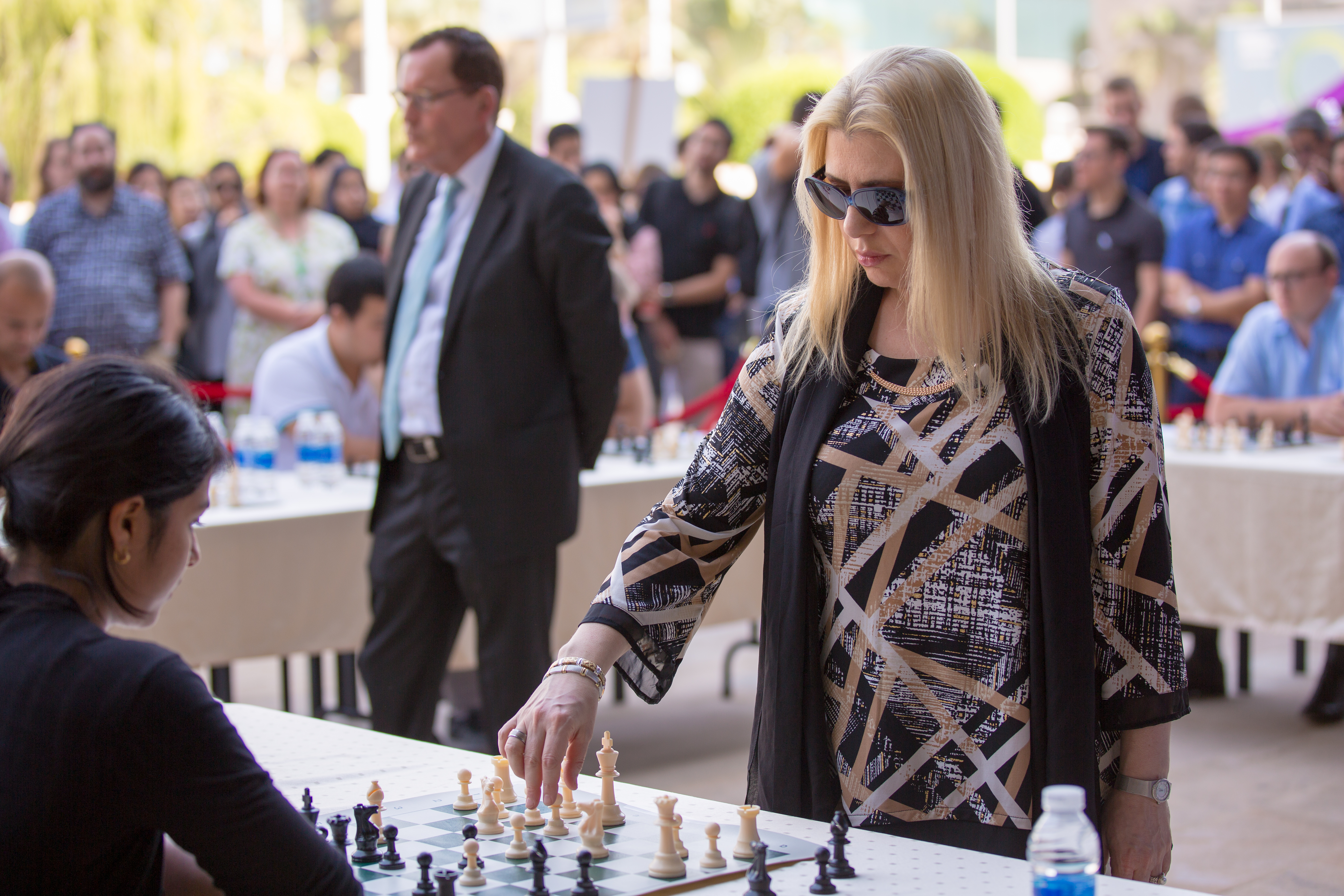Grandmaster continues to break barriers

Chess champion and grandmaster Susan Polgar plays with 10 KAUST Chess Club members in a simultaneous chess exhibition during WEP 2018.
- By Lulwah Shalhoub, KAUST News
Hungarian-American chess grandmaster Susan Polgar, the first woman to break the gender barrier in chess, played 10 opponents simultaneously during an exhibition with the KAUST Chess Club hoping to give chess lovers a memorable experience similar to the one she had when she played against a grandmaster as a child.
Polgar was only 4 when she first challenged a Soviet grandmaster. "Hopefully I could give the same pleasant lifetime memories to my opponents regardless of the result," she said ahead of the exhibition, which took place during the KAUST 2018 Winter Enrichment Program (WEP). She went on to beat all 10 of the challengers she faced.
During her visit to KAUST, Polgar also gave a lecture entitled "How Artificial Intelligence (AI) Turned the Chess World Upside Down," during which she talked about how technology has changed the game in the world of chess and the history of it. The connection between chess and technology goes back to 1977, when an IBM supercomputer beat the World Chess Champion Gary Kasparov in a match that was historically known as the first time a machine beat a grandmaster at chess.
"There is a lot of correlation between chess and science, especially in the last few decades when chess has been heavily used as a platform for the development of AI," Polgar said.
The chess grandmaster added that "artificial intelligence has also made a tremendous change in chess players' lives and in the chess world in general. Everybody has access to a chess engine, a computer program that analyzes chess positions and makes decisions for the best chess moves, which brought the world closer. It wasn't the case when I was growing up…Information was very limited."
Speaking during her first visit to Saudi Arabia, Polgar said, "I'm very impressed by KAUST, and I've been to a lot of universities over the years, from Oxford to Harvard and everything in between. I'm hearing from many different visiting professors that they are very impressed by the equipment available for faculty and students and that it is just a dream, even in very prestigious universities elsewhere."
Polgar was homeschooled due to her advanced academic level for her age, which she said allowed her to invest more time in developing her passion for chess. She believes that chess teaches people to be objective and to look at both sides of the coin.
"I think that a shortcoming in our society is that people think too much from their points of view and don't look at the whole picture or from the other side's perspective," she said.
Entering the male-dominated of world of chess was challenging, yet it did not hold her back from becoming the first female chess player to earn the title in 1991, especially because she had her family's full support.
She broke the gender barrier and paved the way for other female chess players en route to become the first woman to qualify for the Men's World Chess Championship. She was initially barred from competition due to her gender, but the World Chess Federation (FIDE) eventually changed their policy to admit female players.
After being five-time Olympic champion and winning 10 medals—five of which are gold—and following on her many achievements in chess, Polgar decided to channel her passion into starting chess foundations. She started the Susan Polgar Foundation in 2002 as a nonprofit organization advocating for chess and education through chess.
She also started the Susan Polgar Institute for Chess Excellence (SPICE) at Webster University. Since 2012, she has coached chess champion students there.
"Even though chess still doesn't have the support of mainstream sports, it is understood that there are now a good number of universities across the U.S. that can compete. Our teams have won the last seven championships," she said.
As she continues to advocate for chess, Polgar hopes that one day it will get the same attention and commercial support that other mainstream sports receive worldwide.

